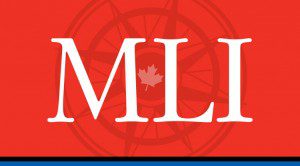 Lawrence Herman maps out the possible outcomes for the North American Free Trade Agreement after the results of the recent United States election.
Lawrence Herman maps out the possible outcomes for the North American Free Trade Agreement after the results of the recent United States election.
By Lawrence Herman, Nov. 10, 2016
As we try to come to grips with all the implications of the Trump ascendency, there are some important points for Canada to contemplate when it comes to bilateral trade matters.
First, Trump will move quickly to demand re-negotiation of the NAFTA and while his acrimony is focused on Mexico, as a trilateral agreement Canada will be directly and immediately involved. There’s no way around that. If Trump wants to open the NAFTA, it’s impossible for Canada to refuse to be at the table.
Second, re-negotiating the NAFTA means opening up parts of the deal that will directly concern Canada – such as duty-free entry or low tariff rates. You can’t raise duties on Mexican goods without changing the same duties on Canadian goods. Such as autos, chemicals, foodstuffs. You name it. That’s what happens under most-favoured-nation (MFN) treatment.
If Trump wants to open the NAFTA, it’s impossible for Canada to refuse to be at the table.
Third, while there’s a view that abrogating the NAFTA – assuming the Americans want to go that far – will then resuscitate the 1988 Canada-US Trade Agreement, it is almost certain that the US will want to change that agreement as well. If Trump as president is as aggressive on trade as he was on the hustings, there’s reason to be worried that he’ll re-jig the entire bilateral trading relationship with Mexico as well as Canada, meaning the old FTA is up for grabs as well.
Fourth, as was made clear during the campaign, regional trade deals like the TPP and the proposed US-EU agreement are effectively dead in the water. And there is unease about how the Trump administration will approach multilateral obligations under the WTO and whether it will show commitment, let alone leadership, in that critical forum as well.
Finally, with Republican control of both houses of Congress, Trump can move quickly to get his senior trade policy staff in place and won’t face lengthy delays of 9 or 10 months or more getting Senate confirmation of his nominees. And with Congressional control, getting trade bills passed (which will be needed to change the NAFTA and the FTA) won’t pose a significant challenge.
If Trump as president is as aggressive on trade as he was on the hustings, there’s reason to be worried that he’ll re-jig the entire bilateral trading relationship with Mexico as well as Canada
All of this means the lights will be on late on Sussex Drive (and on Bay Street) as policy makers and business leaders try to plan options and strategies as we enter this new and unsettled era in trade matters.
Lawrence Herman is Associate Counsel at Cassels Brock LLP. During his career with the Foreign Service he represented Canada in numerous international conferences and meetings. He is former head of the Economic and Treaty Law Section in the External Affairs Department.




